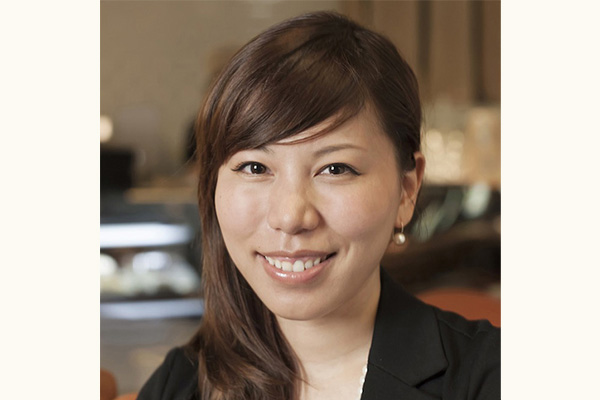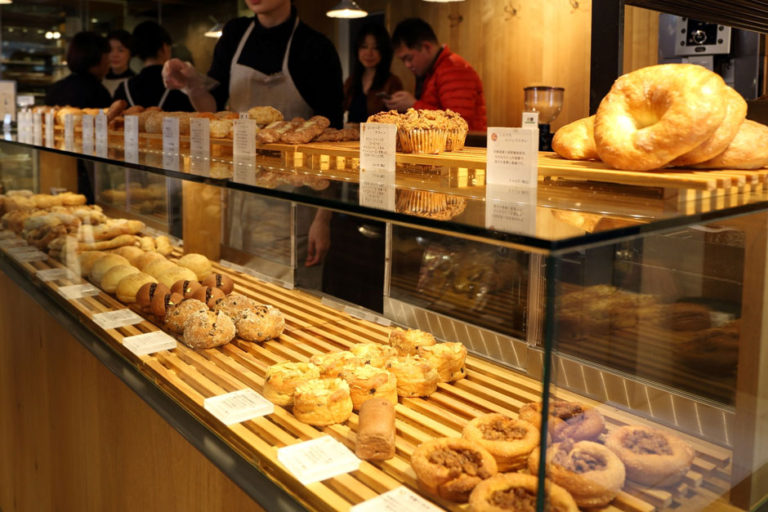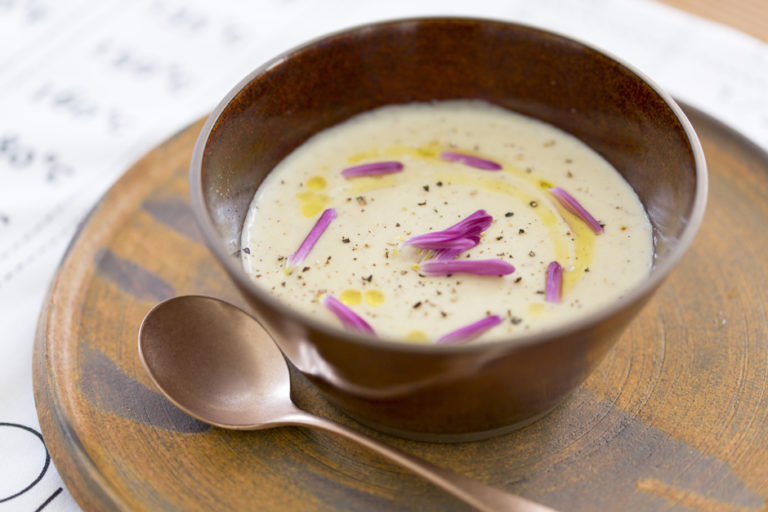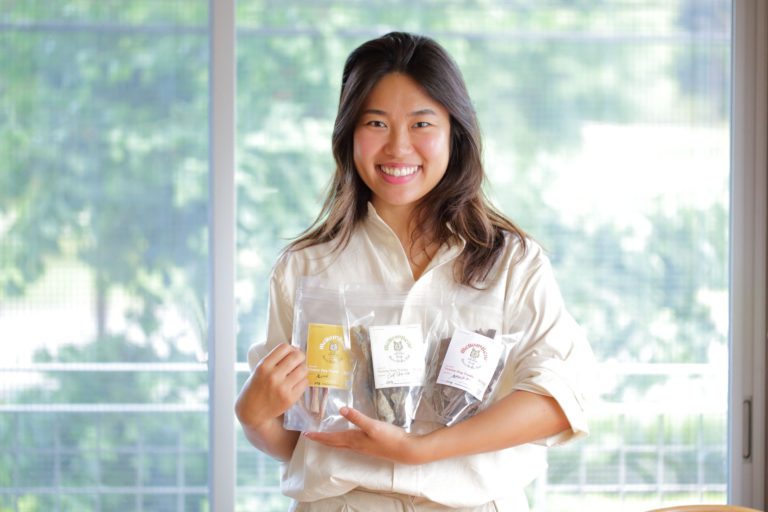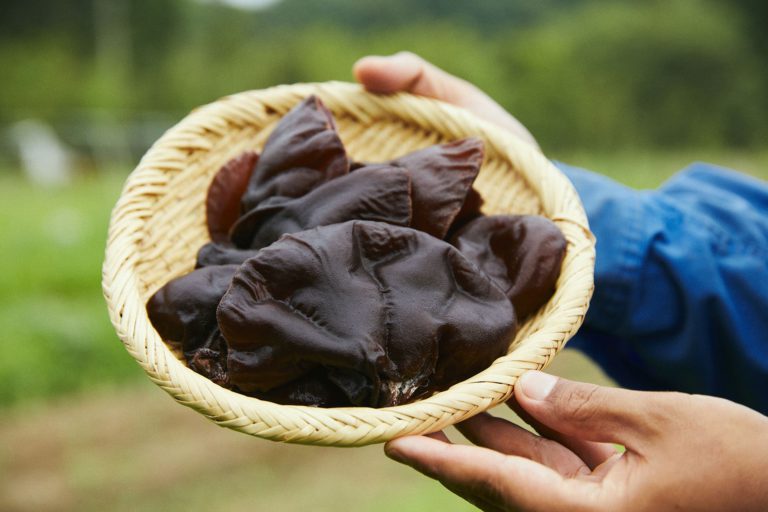SHUN CURATORS (March 2017)
Communicating Good Health from the Dining Table
― Preventive medicine consultant / Momo Hosokawa, Chairman, General Incorporated Association Luvtelli
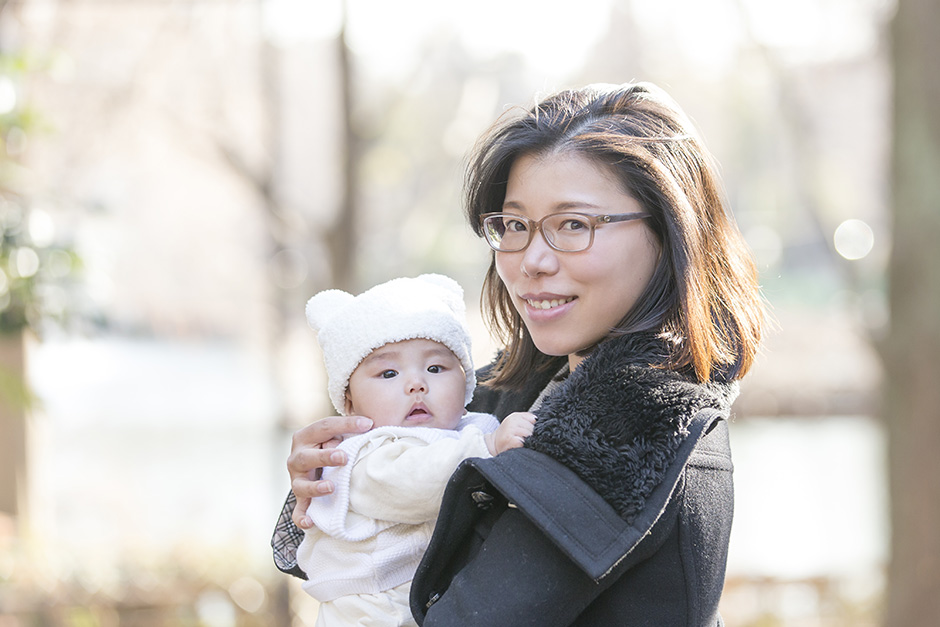
Managing your health a year before the baby is born
What does a preventive medicine consultant’s job entail?
In preventive medicine, you try to avoid getting sick, instead of treating the illness after the fact. There are many categories and I specialize in preventive medicine for keeping mothers and children healthy.
In 2009, I established Luvelli Tokyo & New York, which is a project with a team of specialists to promote preventive medicine in Japan. We help improve the health of women trying to get pregnant, pregnant women, post-natal women and the health of their babies.
Japan has a dramatically high number of underweight babies compared to the average of other developed nations. Current research tells us the seeds of lifestyle diseases, like hypertension and high cholesterol, are programmed in when the baby is still an embryo. This means that health management during pregnancy is important, when the baby is still an embryo. I instruct mothers about what actions they should take when they are pregnant and engage in many other activities, including research and awareness programs.
When I was a teenager, my parents got cancer, even though they were extremely health-conscious, going on macrobiotic diets and eating brown rice. It motivated me to work in a field that helps prevents illnesses. I went to the United States because they are the leader in cutting-edge initiatives. There, I learned about public health and nutrigenomics and was convinced that this was it. We have an increasing number of elderly people in Japan now, and in the future our health insurance system may have to go through a big change. At times like these, I feel we need to have the mindset where we take our health into our own hands.
In 2009, I established Luvelli Tokyo & New York, which is a project with a team of specialists to promote preventive medicine in Japan. We help improve the health of women trying to get pregnant, pregnant women, post-natal women and the health of their babies.
Japan has a dramatically high number of underweight babies compared to the average of other developed nations. Current research tells us the seeds of lifestyle diseases, like hypertension and high cholesterol, are programmed in when the baby is still an embryo. This means that health management during pregnancy is important, when the baby is still an embryo. I instruct mothers about what actions they should take when they are pregnant and engage in many other activities, including research and awareness programs.
When I was a teenager, my parents got cancer, even though they were extremely health-conscious, going on macrobiotic diets and eating brown rice. It motivated me to work in a field that helps prevents illnesses. I went to the United States because they are the leader in cutting-edge initiatives. There, I learned about public health and nutrigenomics and was convinced that this was it. We have an increasing number of elderly people in Japan now, and in the future our health insurance system may have to go through a big change. At times like these, I feel we need to have the mindset where we take our health into our own hands.
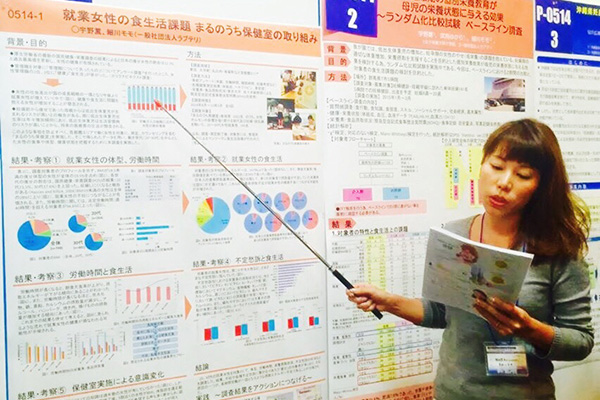
Did you make any discoveries when you studied abroad?
I was shocked by how cool the New York City Department of Health and Mental Hygiene was, in terms of the information they released. In the United States, some academic papers to the press are edited by the writers of the New York Times. The language is refined and is rewritten in an interesting way to draw attention. An educational divide can easily lead to a health divide, so the papers featured a lot of visuals and in full color. It stunned me.
But it also gave me a chance to rediscover the wonders of Japan, especially how great Japanese cuisine is. If you take obesity for example, it is sometimes naturally prevented when you are in Japan. Japanese cuisine is limited to a certain portion per person and a balance in ingredients is always considered. Compared this to the large-plate dining style where you can pile on what you like, as much as you like on one plate. People usually find fats and sugars tasty, but Japanese people are known to have developed a special sense of taste called umami. I think it was then that I got interested in using food, especially Japanese cuisine, to boost people’s health. I thought to myself, “Japanese cuisine is good for health because even if you do not take in fats and sugars, you can be satisfied with umami from things like soup.”
But it also gave me a chance to rediscover the wonders of Japan, especially how great Japanese cuisine is. If you take obesity for example, it is sometimes naturally prevented when you are in Japan. Japanese cuisine is limited to a certain portion per person and a balance in ingredients is always considered. Compared this to the large-plate dining style where you can pile on what you like, as much as you like on one plate. People usually find fats and sugars tasty, but Japanese people are known to have developed a special sense of taste called umami. I think it was then that I got interested in using food, especially Japanese cuisine, to boost people’s health. I thought to myself, “Japanese cuisine is good for health because even if you do not take in fats and sugars, you can be satisfied with umami from things like soup.”
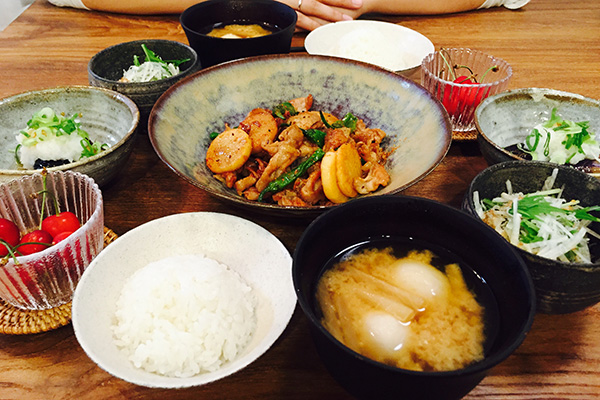
Regional, in-season food protects our health
You have been promoting health for mothers and children. Now that you have become a mother yourself and started your own family, are there any changes to the way you see food?
I think one of the characteristics of Japanese home cooking is the colorful menus that have a lot of seasonality, so I have started to make food during seasonal events like osechi cuisine for the New Year (featuring a special assortment of cooked dishes), pumpkins and yuzu citrus for the winter solstice, and eels on the day of the ox, a special day in the summer. I feel I have to tell my child about the wide variety of ingredients and the wonders the four seasons bring to each region.
Seasonal food can also effectively prevent the health problems of that season. In the summer, when you lose a lot of nutrients through your sweat, you can eat summer vegetables to replenish your water and minerals. Also, kombu seaweed and sesame seeds are so high in nutrition they can be called Japan’s superfoods. When people think of vegetables, many think of the lettuce, cucumbers and tomatoes in their salads, but in Japan there are many ways to enjoy seasonal and local vegetables as side dishes, like boiled spinach and lightly pickled vegetables. The dining experience at home is synonymous to educating your children about their diet, so I started to feel like I wanted to pay careful attention to home cooking.
Seasonal food can also effectively prevent the health problems of that season. In the summer, when you lose a lot of nutrients through your sweat, you can eat summer vegetables to replenish your water and minerals. Also, kombu seaweed and sesame seeds are so high in nutrition they can be called Japan’s superfoods. When people think of vegetables, many think of the lettuce, cucumbers and tomatoes in their salads, but in Japan there are many ways to enjoy seasonal and local vegetables as side dishes, like boiled spinach and lightly pickled vegetables. The dining experience at home is synonymous to educating your children about their diet, so I started to feel like I wanted to pay careful attention to home cooking.
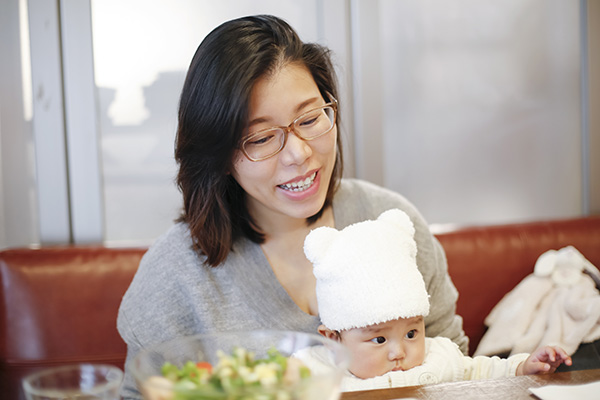
The wish to pass on the way to enjoy eating that will also improve family health
Going forward, how would you like to preserve, change or pass on Japanese cooking?
These days, many women are hard workers, but our research shows that women who cook are healthier than those who don’t. They also give themselves good assessments at work, and they also have fewer worries about the future.
In the United States, getting delivery is common. Home-delivery services that deliver prepared vegetables have recently begun in Japan. Maybe it is unique in Japan that people want to at least heat or flavor the delivered food, instead of getting something that is completely ready-made.
Cooking is not just about passing on easy methods of taking in nutrition or food culture. It is directly linked with the happiness of the mind. In Japan, more people are spending more time working and less time cooking every year, but I hope everyone can use food well to make each day a happy day.
In the United States, getting delivery is common. Home-delivery services that deliver prepared vegetables have recently begun in Japan. Maybe it is unique in Japan that people want to at least heat or flavor the delivered food, instead of getting something that is completely ready-made.
Cooking is not just about passing on easy methods of taking in nutrition or food culture. It is directly linked with the happiness of the mind. In Japan, more people are spending more time working and less time cooking every year, but I hope everyone can use food well to make each day a happy day.
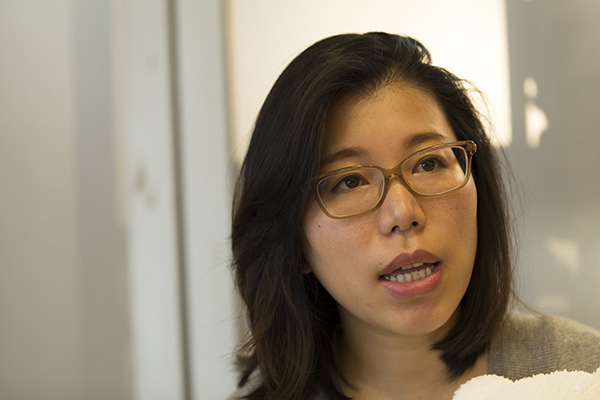
What is it that you would like to tell people with your book, Shokuji Wo Shitteiru Dake De Jinsei Wo Okiku Mamoreru (Translation: Knowing What You Eat Will Protect Your Life Greatly)?
There are an increasing number of health-conscious people in Japan. Japanese cuisine was registered in 2013 as a UNESCO intangible cultural heritage. Japanese cuisine mainly revolves around the use of rice. I want to communicate that compared to using wheat, it is easier to create healthy menus with Japanese cuisine and that Japanese cuisine is good for managing nutrition.
The other thing to be careful about is whether the information you get is backed with concrete evidence. Health information trends change every day, but are they based on clear evidence, or are they just a product of a man-made, temporary trend? Consumers need to have an eye for the truth.
First, it is important to know. Then, it would be nice if we could all enjoy the Japanese cuisine Japan’s climate and land have nurtured, and become a healthy family.
The other thing to be careful about is whether the information you get is backed with concrete evidence. Health information trends change every day, but are they based on clear evidence, or are they just a product of a man-made, temporary trend? Consumers need to have an eye for the truth.
First, it is important to know. Then, it would be nice if we could all enjoy the Japanese cuisine Japan’s climate and land have nurtured, and become a healthy family.
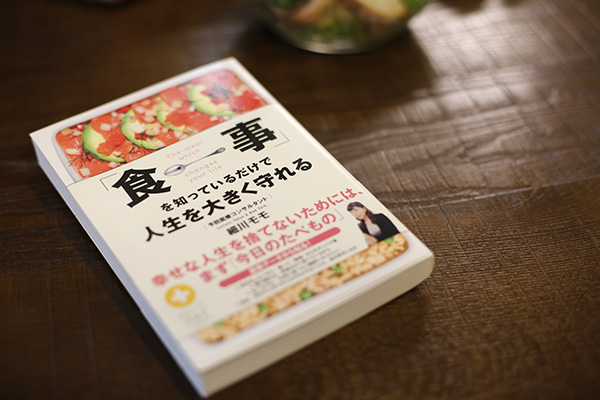
Writer : MINA HIRANO
/
Photographer : CHIE MARUYAMA

